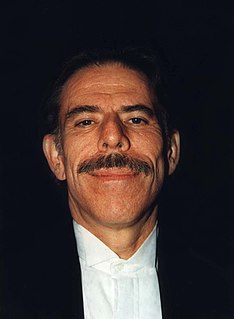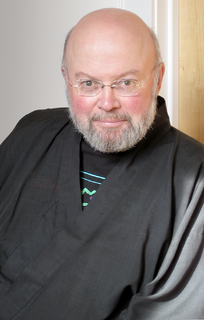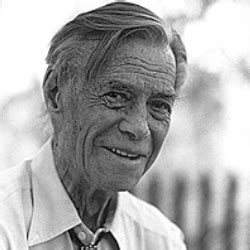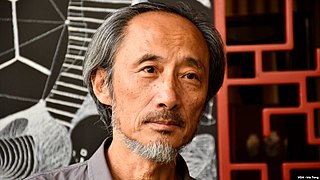Top 116 Tibet Quotes & Sayings - Page 2
Explore popular Tibet quotes.
Last updated on April 16, 2025.
Wherever I live, I shall feel homesick for Tibet. I often think I can still hear the cries of wild geese and cranes and the beating of their wings as they fly over Lhasa in the clear, cold moonlight. My heartfelt wish is that my story may create some understanding for a people whose will to live in peace and freedom has won so little sympathy from an indifferent world.
The buddha-dharma does not invite us to dabble in abstract notions. Rather, the task it presents us with is to attend to what we actually experience, right in this moment. You don't have to look "over there." You don't have to figure anything out. You don't have to acquire anything. And you don't have to run off to Tibet, or Japan, or anywhere else. You wake up right here. In fact, you can only wake up right here. So you don't have to do the long search, the frantic chase, the painful quest. You're already right where you need to be.
Gandhi and Mandela and Churchill and JFK and Reagan and Thatcher and Sarkozy and Franklin and Washington set the tone to an incredible degree-their "personal style" was their "brand." ("It" starts with personal style of the tip-top leadership team. Sorry to be politically insensitive, but who would give a hoot about Tibet if it weren't for the look and style of the Dalai Lama?) Boss at any level: You're either on the "it" boat-or not.
The Bush administration continues to coddle China, despite its continuing crackdown on democratic reform, its brutal subjugation of Tibet, its irresponsible export of nuclear and missile technology... Such forbearance on our part might have made sense during the Cold War when China was the counterweight to Soviet power. It makes no sense to play the China card now when our opponents have thrown in their hand.
The air they breathe, being a living element with both physical and psychical properties, carries a subtle vital energy. This in India is named by the Sanskrit word prana; in Tibet it is called sugs, in Aikido, Japan, ki, and in China, chi. By controlling its circulation throughout the body, man is able to attain spiritual enlightenment or illumination.
The term is piqua nevish [?] it means to save a soul, to save a life. And that commandment supersedes all others. It means literally you may violate almost everything except, I think, three commandments of the heart, 613, - you may do anything, violate any commandment and the injunction simply to save a human life. And there are enough lives to be saved in - in Tibet.
I'm convinced after spending three weeks in China and Tibet, unless the United States gets its act together, our grandchildren will be living in a world dominated by the People's Republic. China is simply inexorable in its pursuit of wealth, growth and power. It cares little about human rights, democracy, labor protections, fair trade rules or the environment. It is relentless in advancing its national interests.
They have their belief, these poor Tibet people, that Providence sends down always an Incarnation of Himself into every generation. At bottom some belief in a kind of Pope! At bottom still better, a belief that there is a Greatest Man; that he is discoverable; that, once discovered, we ought to treat him with an obedience which knows no bounds. This is the truth of Grand Lamaism; the "discoverability" is the only error here.
I meditate, and when I do, Prince Harry appears in my subconscious and meditates with me. It's a little strange but I don't think there's anything I can do about it. Sometimes he's not the only one; the other day it was me, Prince Harry, the Dalai Lama, Mr. Rogers, Coco the gorilla, and George Clooney. We were all floating above the earth looking down at the continents as they passed. George Clooney suggested I visit Providence, Rhode Island. The Dalai Lama sighed deeply and said he'd like to visit Tibet. Poor Dalai Lama.
In Tibet there is no marriage, and there is no jealousy, yet we know that marriage is a much higher state. The Tibetans have not known the wonderful enjoyment, the blessing of chastity, the happiness of having a chaste, virtuous wife, or a chaste, virtuous husband. These people cannot feel that. And similarly they do not feel the intense jealousy of the chaste wife or husband, or the misery caused by unfaithfulness on either side, with all the heart-burnings and sorrows which believers in chastity experience. On one side, the latter gain happiness, but on the other, they suffer misery too.
It's impressive that a man [Dalai Lama], on the day after his Nobel Prize was announced, in October, 1989, said to me, "I really wonder if my efforts are enough?" Most of us, if we just won the Nobel Prize, would think this is vindication, or at last there's a chance for Tibet. He's the rare person who thinks, as a Buddha would, "I don't know if I've done enough, I don't know if I will do enough."
Once you have learned to trust your own voice and allowed that creative force inside you to come out, you can direct it to write short stories, novels, and poetry, do revisions, and so on. You have the basic tool to fulfill your writing dreams. But beware. This type of writing will uncover other dreams you have, too-going to Tibet, being the first woman president of the United States, building a solar studio in New Mexico-and they will be in black and white. It will be harder to avoid them.
If the situation was such that there was only one learned lama or genuine practitioner alive, a person whose death would cause the whole of Tibet to lose all hope of keeping its Buddhist way of life, then it is conceivable that in order to protect that one person it might be justified for one or 10 enemies to be eliminated if there was no other way.
I remember how people would often come to see my master Jamyang Khyentse simply to ask for his guidance for the moment of death. He was so loved and revered throughout Tibet, especially in the eastern province of Kham, that some would travel for months on end to meet him and get his blessing just once before they died. All my masters would give this as their advice, for this is the essence of what is needed as you come to die: "Be free of attachment and aversion. Keep your mind pure. And unite your mind with Buddha."
I believe that the Tibetans should have the right to control their own destinies and decide for themselves whether they want to be part of China or not. But this view isn't shared by most Chinese, or even the leaders of most Western democracies. As long as the Communist Party is in power, there is little hope for Tibet.
[The Dalai Lama] told me some years ago, "I've made every concession to China, and I've been as open and tolerant as I could, and still things get worse in Tibet." If you look at it from one point of view, as he himself says, his monastic position of forbearance and nonviolence hasn't reaped any benefits. And yet, he's thinking in terms of the long term, of centuries.
Dalai Lama has made new opportunities for women that they never had in Tibet, introduced science into the monks' curriculum and had Tibetan students in exile take their classes in English after the age of ten so that they will know more about the outside world. But one of the great things he's done is to bring all the Tibetan groups together in exile, as perhaps they couldn't have been when they weren't in exile and they weren't under such pressure.
Adventure has to do with private, personal experiences. But, the possibilities, there are millions of unclimbed mountains - I have seen in the Eastern part of Tibet, mountains 6,000-6,500 meters high, vertical walls twice as tall as the Eiger... but nobody is going there, because they aren't 8,000-meter peaks.
Tibet, why is it occupied? For political reasons maybe they have a reason. I don't know. But religiously, why? The fact that the religious community is being oppressed and persecuted is something that every single person in the world who has any religious faith and religious feeling for - for people who have faith should speak up.
Then another thing, now this is mainly for our interest about Tibet, our struggle. Whole struggle depend on within person. For dangerous. Foolish! Not for this only institution or even not only for Buddhist dogma, but before national sort of right, our right. So therefore this struggle must carried by people themselves.
The whole Hollywood conception of Tibet as this peace-loving country denies the complex humanity of the Tibetan people. Their ideas exist in a high degree of tension with impulses toward corruption, toward violence, toward all sorts of things. The Dalai Lama himself would say that he has to fight these impulses himself on a daily basis.
To finish building the free society dreamed of by Washington, Franklin, and Jefferson, we must draw upon the resources of the enlightened imagination, which can be systematically developed by the spiritual sciences of India and Tibet. We have not yet tamed our own demons of racism, nationalism, sexism, and materialism. We have not yet made peace with a land we took by force and have only partly paid for. We are a teeming conglomeration of people from different tribes who have yet to embrace fully the humanness in one another. And none of us can be really free until all of us are.
I'm now nearly 79. At 16 I took responsibility for Tibet and lost my freedom. At 24 I lost my country and became a refugee. I've met difficulties, but as the saying goes: 'Wherever you're happy, you can call home, and whoever is kind to you is like your parents.' I've been happy and at home in the world at large. Living a meaningful life isn't just a matter of money; it's about dedicating your life to helping others.
Up to now my involvement in the Tibetan freedom struggle has been part of my spiritual practice, because the issues of the survival of the Buddha Teaching and the freedom of Tibet are very much related. In this particular struggle, there is no problem with many monks and nuns, including myself, joining.
You shouldn't speak until you know what you're talking about. That's why I get uncomfortable with interviews. Reporters ask me what I feel China should do about Tibet. Who cares what I think China should do? I'm a f***ing actor! They hand me a script. I act. I'm here for entertainment, basically, when you whittle everything away. I'm a grown man who puts on makeup.
The tradition of nonviolence, optimism, concern for the individual, and unconditional compassion that developed in Tibet is the culmination of a slow inner revolution, a cool one, hard to see, that began 2,500 years ago with the Buddha's insight about the end of suffering. What I have learned from these people has forever changed my life, and I believe their culture contains an inner science particularly relevant to the difficult time in which we live.
Jesus must have been a really great artist in creating enemies because he was only thirty-three when he was crucified, and there were only three years of work because he appeared at the age of thirty. Up to that time he was with the mystery schools, going around the world to Egypt, to India, and the possibility is even to Tibet and to Japan.
































